Last-Minute NYC Holiday Gift Guide 🎁
We’ve created a holiday gift guide with presents for the intrepid New Yorker that should arrive just in time—


What kind of apartment building is worth a five to ten year waitlist? Prospective tenants of the Westbeth Artists’ Housing certainly believe the apartment complexes are worth the wait. Conceived in the 1960s to provide affordable housing and studios for the city’s artists and their families, the Westbeth Artist’s Housing is a 13-building complex which provides dynamic living and working spaces for the 384 multi-disciplined artists that it hosts. We recently took an insider tour with New York Adventure Club into this unique space.
The complex is one of New York City’s celebrated adaptive repurposing of industrial spaces, one of the first for artistic and residential use in the United States. Originally built as a site for Bell Telephone Laboratories, Westbeth was the largest industrial research center in the United States for a time. Between 1898 and 1966 numerous noteworthy inventions were made at Bell Laboratories, including the first transistor, first experimental talking movies, first binary computer, first television boradcast, black and white and color TV, video telephones, radar, the vacuum tube, and more. Intriguingly, the complex was also the venue for part of the Manhattan Project during World War II.
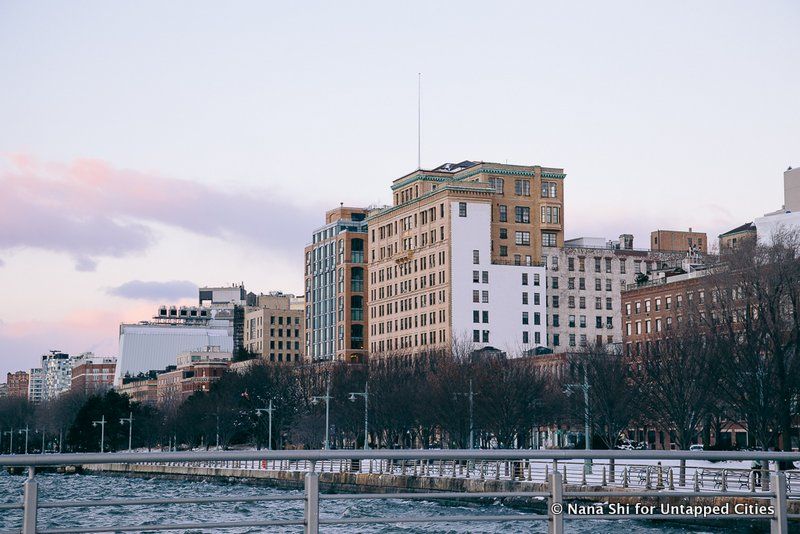
Westbeth remained vacant for the remainder of the the 1960s after being abandoned by Bells Laboratories until an innovative renovation project was launched to create live-work spaces for artists. Spearheaded by developer Dixon Bain, and with funding from Joan Davidson of J.M. Kaplan Foundation, and Roger Stevens of the National Endowment for the Arts, Westbeth opened in 1970 as the first and largest federally subsidized artist’s complex in the United States.
The renovation of the complex was the first significant project for architect Richard Meier, who later went on to win the Pritzker Prize for architecture, and who is still a distinguished figure in modern architecture. Some of the apartments are duplex, with the main entrance leading to the upper or lower floor alternatively.
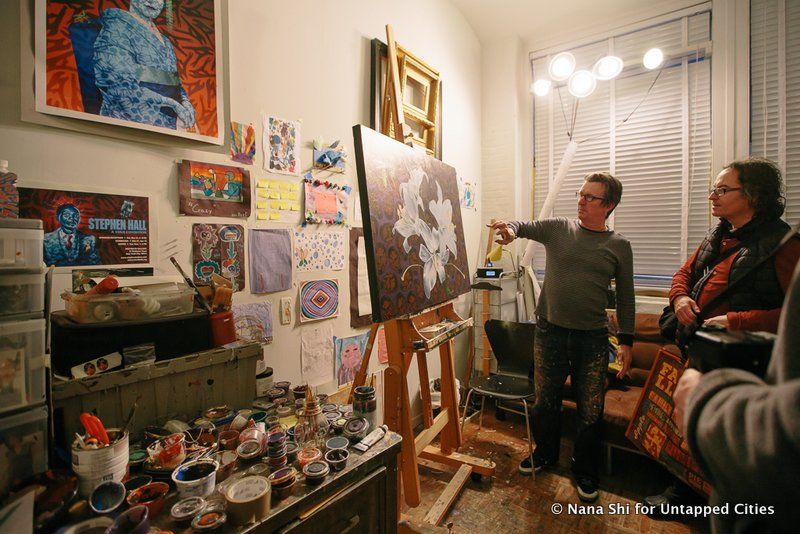
Inside the artist and resident of Westbeth Stephen Hall’s apartment. He has a duplex apartment in Westbeth. Downstairs is the studio and bedrooms, and upstairs is the living room and kitchen.
Westbeth became a haven for artists who sought cheap rent and decent work space, a residential oasis in New York’s perpetually overheated real estate market. In fact, artists were so delighted by the circumstances that Westbeth’s original plan to be an incubator space for artists to reside in for five years or so was quickly cast aside. 40 to 50 percent of the original tenants still live there today, or have passed down their rent-stabilized apartments to their children and grandchildren. As of 2009, it is reported about 60 percent of the tenants are over the age of 60. An article by the New York Times aptly states, “Westbeth was Never Never Land, and like Peter Pan, they never left.”
This extreme disinclination to leave, along with the law permitting children to take over their parent’s apartment, has resulted in long wait times for units, such that the wait-list for Westbeth closed in 2007 and has yet to be reopened. With rent being significantly less than other equivalent duplex apartments around the city, it is obvious why death seems to be the predominant form of vacancy in most cases for these incredible artists spaces.
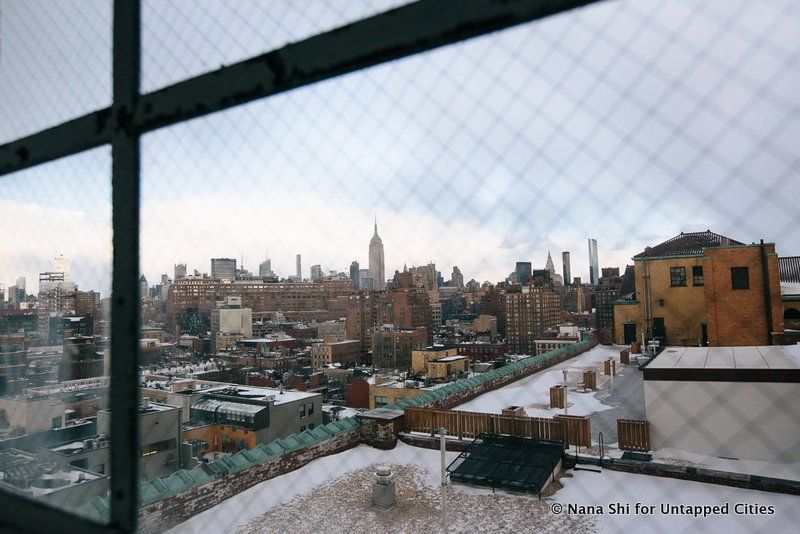
View from the 12th floor of Westbeth
This certainly was the case for renowned photographer and writer Diane Arbus who committed suicide in her Westbeth apartment. Among other longtime, distinguished Westbeth residents are Vin Diesel’s parents—with Vin Diesel himself having grown up there. Puppeteer Ralph Lee, the founder of the Greenwich Village Halloween Parade also still lives and works there. In fact, the Halloween Parade started at Westbeth for the first few years and was moved to Sixth Avenue due to increased popularity. Other eminent current or former residence include Robert De Niro Sr., Robert Beauchamp, Anita Hoffman, and others.
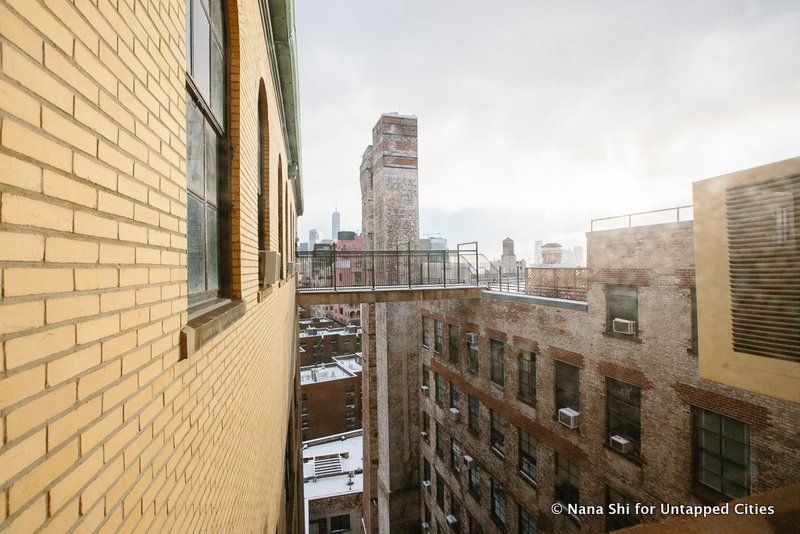
The view from the Martha Graham Studio
In addition to being a residence to artists, the complex has numerous commercial spaces, performance and rehearsal spaces, and artists studios such as the Westbeth Sculptors’ Studio and the Westbeth Graphic Studio. Westbeth is also home to various major cultural organizations. The New School for Drama, the Labyrinth Theater Company, the Martha Graham Center for Contemporary Dance, and Congregation Beit Simchat Torah, the first LGBT synagogue in New York and the largest in the world, all reside in the complex. Westbeth also features a community performance space and art gallery which hosts free cultural events for the public, such as readings, performances, and film screenings.
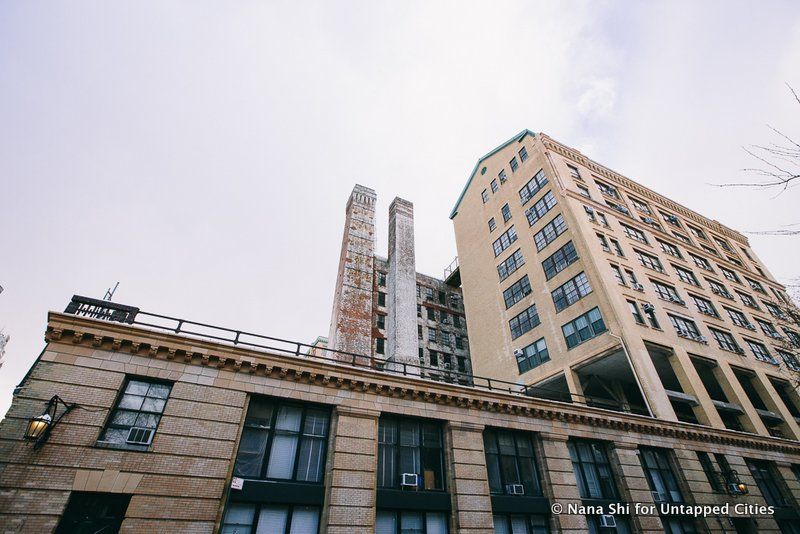
As a historic and prominent venue in the art world, Westbeth has been featured in many documentaries, most recently Winter at Westbeth, which portrays the life of three long-term residence at the complex.
In 2009 Westbeth was added to the National Registrar of Historic Places, with the New York State Historic Preservation Board subsequently nominating Westbeth to be on the State Registrar of Historic Places. Then on October 25, 2011 the New York City Landmarks Preservation Commission unanimously designated Westbeth Artists Housing a New York City landmark.
Scroll down below for additional photographs of Westbeth:
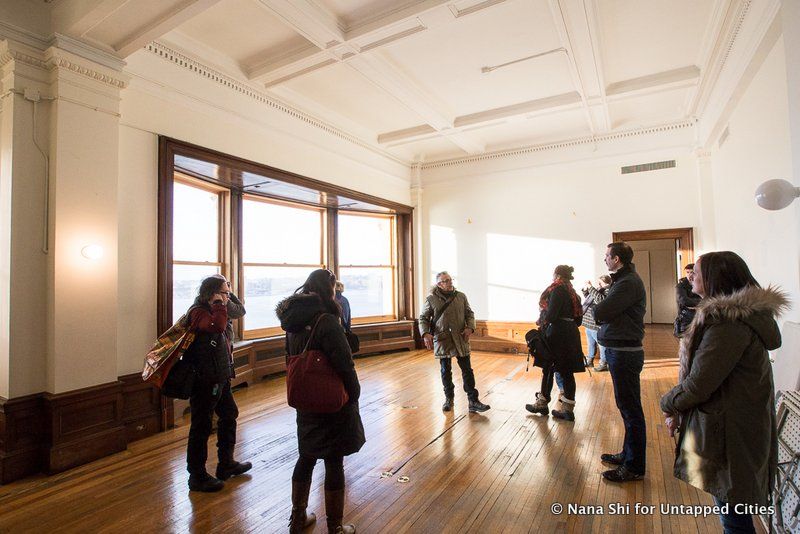
The executive suite at Westbeth, unoccupied at the moment
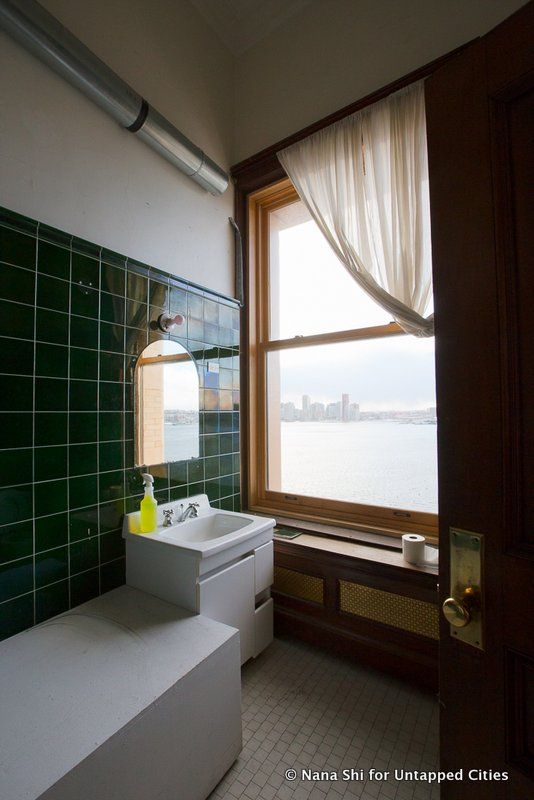
Bathroom in executive suite at Westbeth
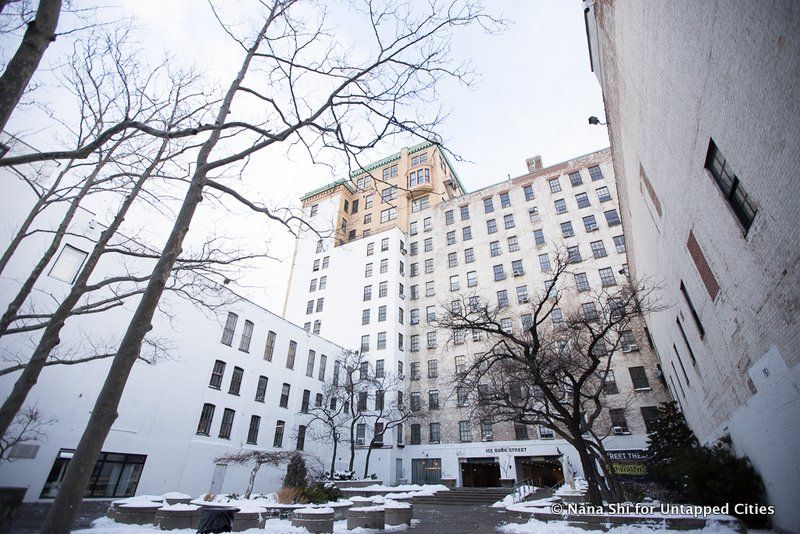
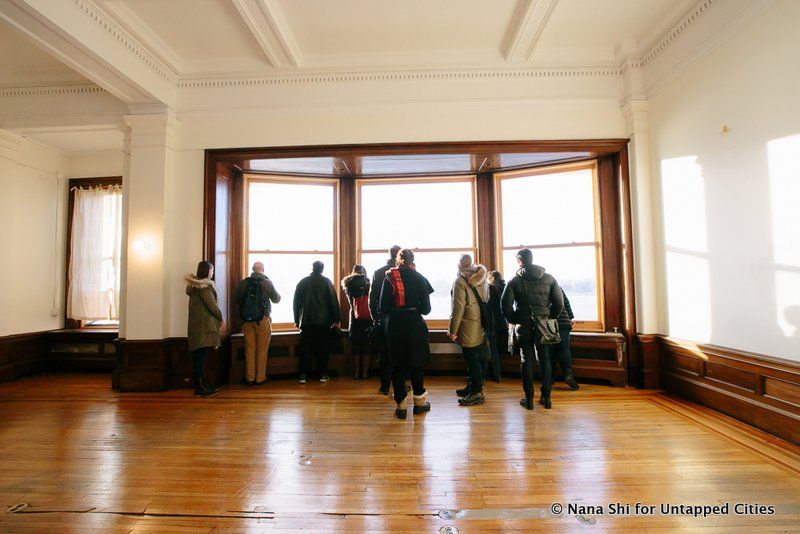 The executive suite at Westbeth, unoccupied at the moment
The executive suite at Westbeth, unoccupied at the moment
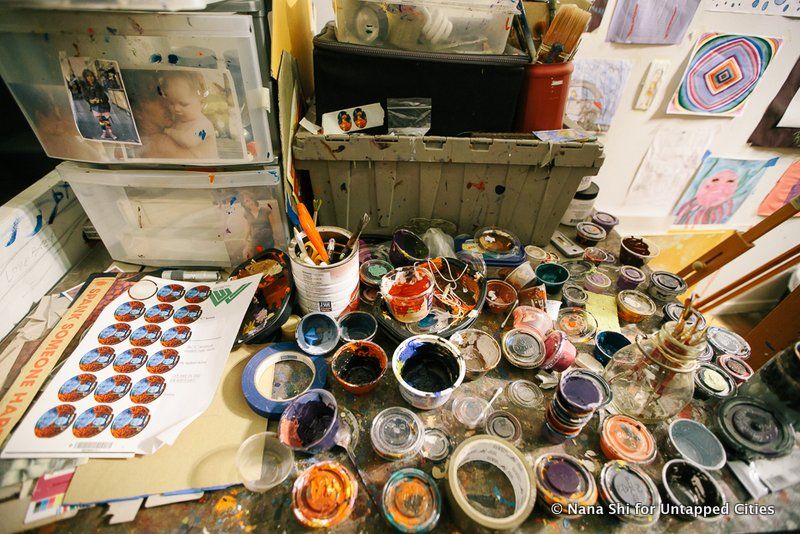
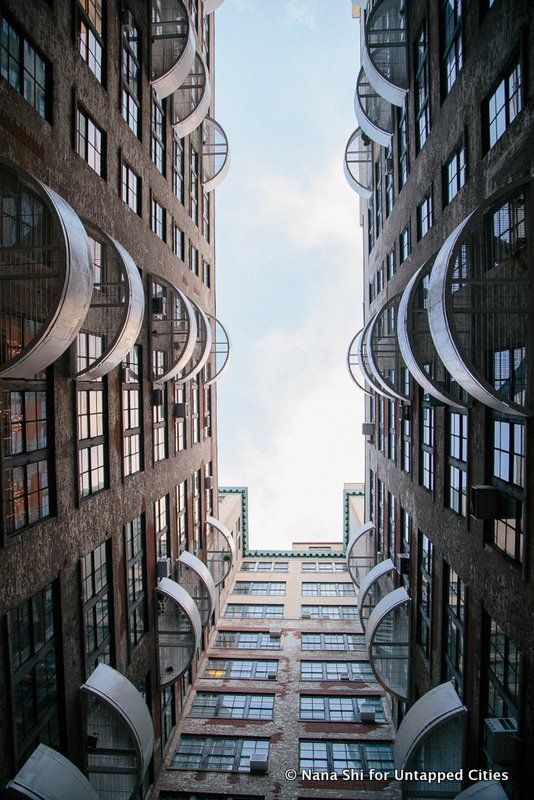
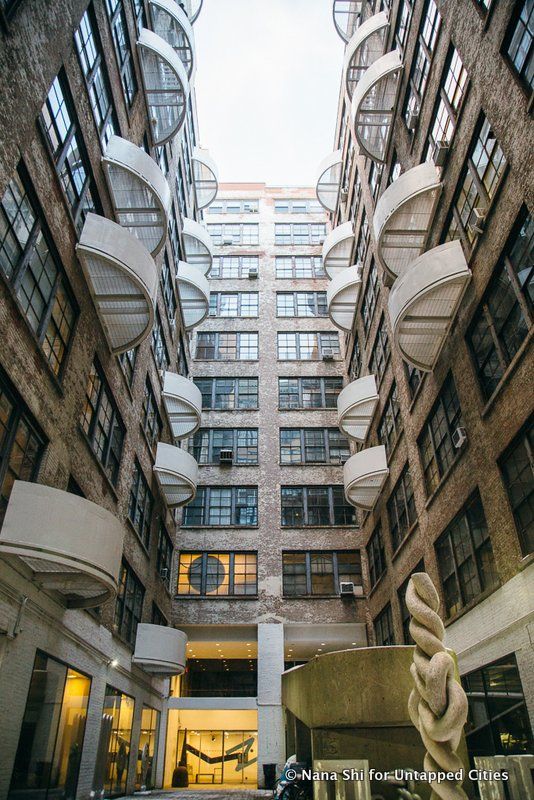
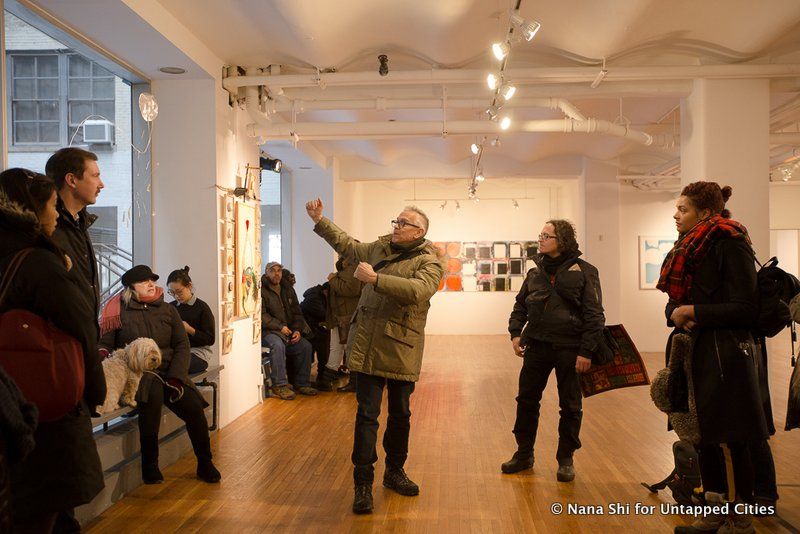
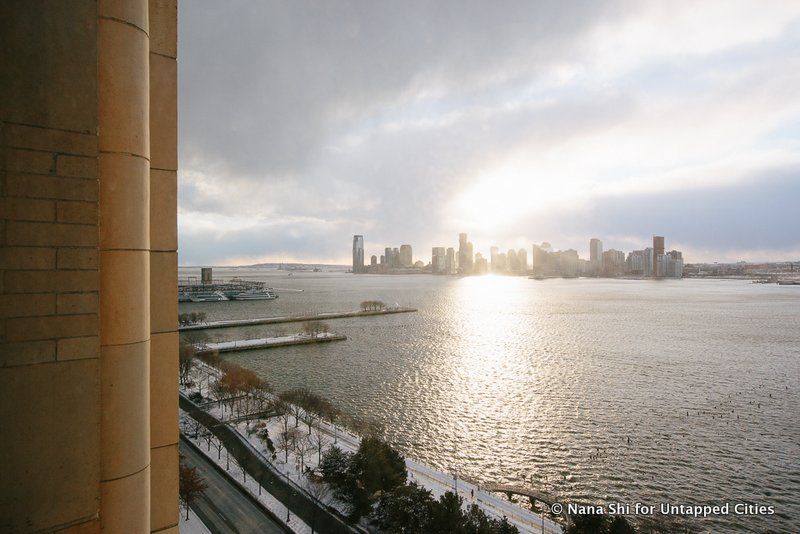
View from the executive suite in Westbeth
Next, check out the Top 15 Secrets of Greenwich Village.
Subscribe to our newsletter